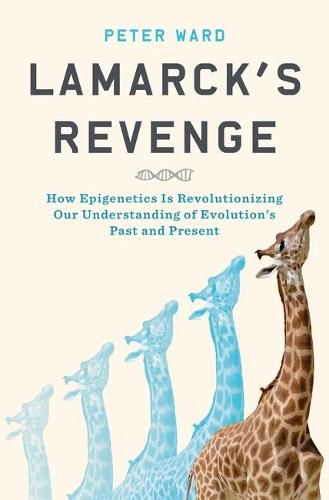Readings Newsletter
Become a Readings Member to make your shopping experience even easier.
Sign in or sign up for free!
You’re not far away from qualifying for FREE standard shipping within Australia
You’ve qualified for FREE standard shipping within Australia
The cart is loading…






Epigenetics upends natural selection and genetic mutation as the sole engines of evolution, and offers startling insights into our future traits.
In the 1700s Jean-Baptiste Lamarck first described epigenetics to explain the inheritance of acquired characteristics, but in the 1800s, his theory was supplanted by Darwin’s theory of evolution by natural selection through heritable genetic mutations. But natural selection could not adequately explain how quickly species re-diversified and re-populated after mass extinctions. Now advances in the study of DNA and RNA have resurrected epigenetics, which can create radical physical and physiological changes in subsequent generations by the simple addition of a single small molecule, thus passing along a propensity for molecules to attach in the same places in the next generation!
Epigenetics is a complex process, but paleontologist and astrobiologist Peter Ward breaks it down for general readers, using the epigenetic paradigm to reexamine how the history of our species–from deep time to the outbreak of the Black Plague and into the present–has left its mark on our physiology, behavior, and intelligence. Of particular interest are chapters on how we are undergoing epigenetic changes now triggered by toxins, environmental pollutants, famine, poor nutrition, and overexposure to violence.
Lamarck’s Revenge is an eye-opening and controversial exploration of how traits are inherited, with special emphasis on outside influences that drive what we pass along to our progeny.
$9.00 standard shipping within Australia
FREE standard shipping within Australia for orders over $100.00
Express & International shipping calculated at checkout
Epigenetics upends natural selection and genetic mutation as the sole engines of evolution, and offers startling insights into our future traits.
In the 1700s Jean-Baptiste Lamarck first described epigenetics to explain the inheritance of acquired characteristics, but in the 1800s, his theory was supplanted by Darwin’s theory of evolution by natural selection through heritable genetic mutations. But natural selection could not adequately explain how quickly species re-diversified and re-populated after mass extinctions. Now advances in the study of DNA and RNA have resurrected epigenetics, which can create radical physical and physiological changes in subsequent generations by the simple addition of a single small molecule, thus passing along a propensity for molecules to attach in the same places in the next generation!
Epigenetics is a complex process, but paleontologist and astrobiologist Peter Ward breaks it down for general readers, using the epigenetic paradigm to reexamine how the history of our species–from deep time to the outbreak of the Black Plague and into the present–has left its mark on our physiology, behavior, and intelligence. Of particular interest are chapters on how we are undergoing epigenetic changes now triggered by toxins, environmental pollutants, famine, poor nutrition, and overexposure to violence.
Lamarck’s Revenge is an eye-opening and controversial exploration of how traits are inherited, with special emphasis on outside influences that drive what we pass along to our progeny.